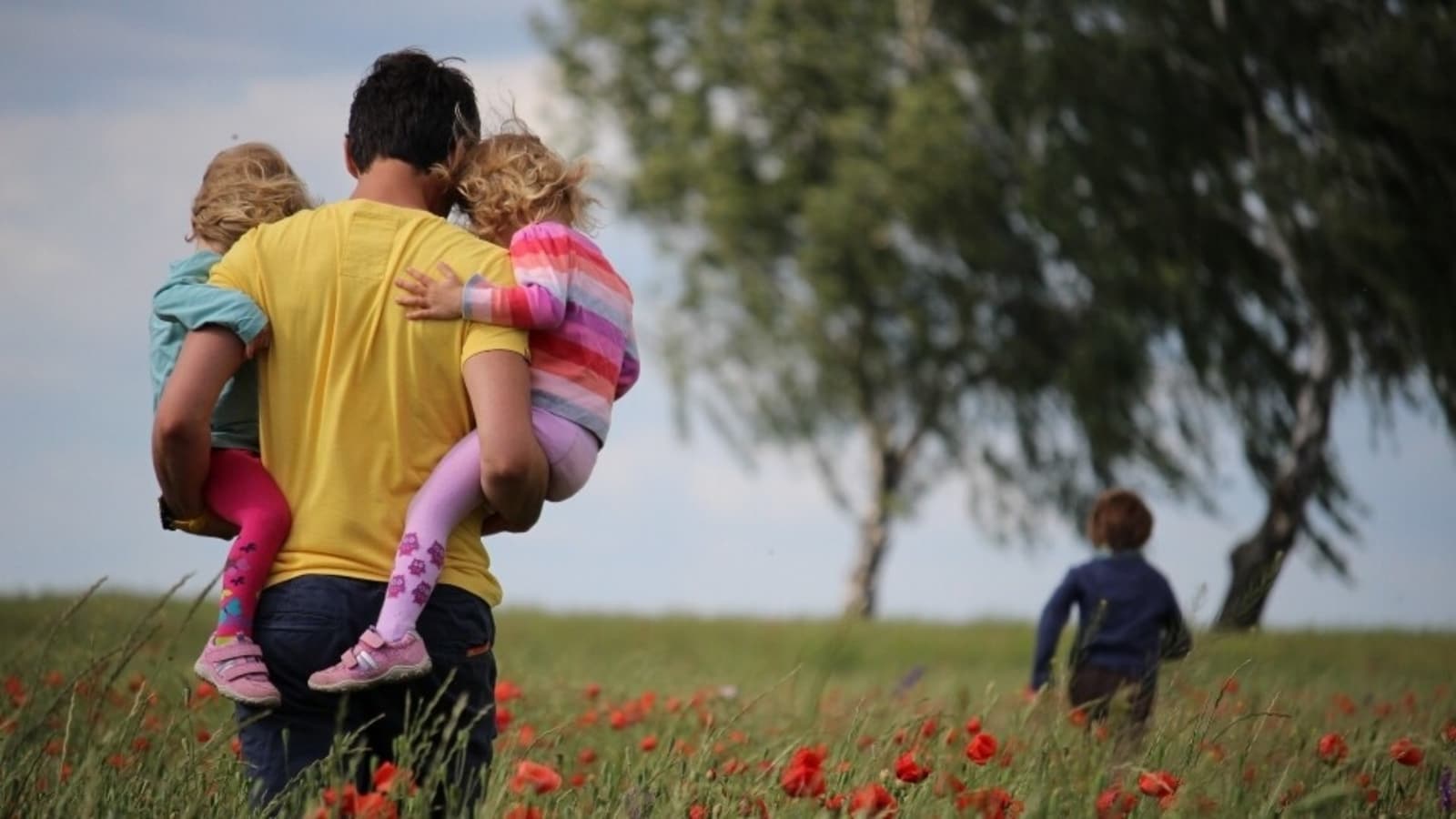Parenting styles have a big impact on kids. Different styles can produce different outcomes in kids, ranging from academic success to problems with mental health and behavior. It’s important to understand the different parenting styles and how they might affect your child before choosing a style that works best for you and your family.
For child development, parenting styles commonly fall into seven different categories: authoritarian, authoritative, permissive, excessive, spiritual, slow, and uninvolved. As well as for exhibit frequent behavior problems, parenting styles can also affect a child’s academic achievement. So what is the best parenting style?
Generally, it depends on what you’re looking for in child development. In early childhood development, authoritative parenting is often considered the best style because it produces children who are confident and independent.
However, in late childhood and adolescence, an authoritarian parenting style may be more appropriate to help children comply with rules and stay on track academically. In this post, we’ll take a look at seven different parenting styles that are frequently discussed in the literature, and how they might affect kids.
In This Article
- 7 Common Types of Parenting Styles
- 1. Authoritative parenting style
- 2. Permissive parenting style
- 3. Uninvolved parenting styles
- 4. Authoritarian Parenting style
- 5. Excessive Parenting style
- 6. Slow Parenting style
- 7. Spiritual Parenting style
- Do parenting styles affect children’s behavior?
- 1. Authoritative parenting effects on the child
- 2. Permissive parenting effects on the child
- 3. Uninvolved parenting effects on the child
- 4. Authoritarian parenting effects on the child
- 5. Excessive parenting effects on the child
- 6. Slow parenting effects on the child
- 7. Spiritual parenting effects on the child
- What type of parenting style is most effective?
7 Common Types of Parenting Styles
Though to develop a child’s behavior there are several factors involved like society, friends, school, teachers, and most importantly parents. Out of all these influences, parenting style is the strongest one. It has a great impact on a child’s life whether is social, emotional as well as academic development. A child’s temperament or resilience, coping skills, and overall adjustment in life can be determined by a parenting style. To develop a positive relationship with children, we need to be mindful of our parenting approach. Below we have outlined the different parenting styles that are popularly chosen by parents and they are:
Authoritative parenting behavior is marked by demandingness and responsiveness. Authoritative parents set high standards for their children but are also responsive to their needs. Authoritative parents put in time and effort to prevent behavioral issues from developing in the first place.
They try to be involved in their children’s lives, but also allow them freedom and independence. Authoritative parents tend to use reasoning and explanation to get their point across rather than punishment or threats.
Children raised with authoritative parenting have better social skills, academic performance, and overall adjustment compared to other parenting styles. They are also less likely to have mental health problems or engage in risky behaviors. Also, authoritative parents validate their child’s feelings while also making it clear that the adults are in command. Authoritative parenting styles are often recommended by experts as the best way to parent.
2. Permissive parenting style
Permissive parenting, also known as indulgent parenting, is marked by very few demands and high levels of responsiveness. Permissive parents are typically very loving and accepting but may be more lenient when it comes to rules and discipline. They often try to be their child’s friend rather than a parent figure.
Permissive parenting ensures that children have a lot of freedom and are not often disciplined. This can lead to problems with socialization, academic achievement, and overall adjustment in life. Children raised with permissive parenting styles may also be more likely to engage in risky behaviors. Permissive parents also focus on the low self-esteem of children to make them feel happy. Furthermore, for a permissive parent, their child’s opinion is most important than anything else.
3. Uninvolved parenting styles
Uninvolved parenting, also known as neglectful parenting, is a type of parenting style characterized by little to no emotional connection between parent and child. Uninvolved parents make few to no demands of their children and they are often emotionally or physically unavailable. Uninvolved parents tend to strict rules established by society and they neglect their relationship with children.
Uninvolved parents tend to be ignorant of what their children are doing and they have an incomplete understanding of child development. Negative outcomes are associated with uninvolved parenting practices such as low self-esteem, mental health issues, substance abuse problems, etc. Neglectful parents enforce rules without any explanations and they are less likely to attend school functions or meet with teachers. This parenting practice can leave children feeling insecure and unsupported. For an uninvolved parent, the child’s basic needs are met but their children’s emotional needs are not met.
Authoritarian parenting is a parenting style characterized by high expectations and little communication. In this parenting style, children are expected to follow rules and orders without any explanation. This is the fourth parenting style that is often used when children misbehave or do not act according to the parent’s expectations. Authoritarian parents may use punishments instead of discipline.
Authoritarian parents raising children who are obedient and well-behaved. They have high academic achievement and do not get involved in risky behavior. But, they often lack social skills and can be resentful towards an authoritarian parent. Generally, Authoritarian parents focus on obedience and compliance rather than on building a warm and supportive relationship. Under authoritarian parents, children tend to become aggressive and have difficulty dealing with frustration.
5. Excessive Parenting style
This parenting style is also known as helicopter parenting. Parents with excessive parenting adopt a hands-on approach in their child’s life. They are always hovering around their children and trying to take care of everything for them. Just like the above four parenting styles, this parenting style has both positive and negative impacts on children.
In this style, children’s opinions and choices are not respected. Their creativity and imagination are also squashed since they are not given any space to try new things on their own. This can lead to lack of confidence in children. They might also have difficulty coping with failure since they have been protected from it their whole life.
Furthermore, the professional medical advice by Dr. Mona Delahooke, Ph.D., states that this parenting style can result in children who are anxious, stressed, and have difficulty regulating their emotions.
6. Slow Parenting style
This parenting style is based on the slow living movement. This parenting style aims to provide a stress-free and relaxed environment for kids so that they can enjoy their childhood without any pressure. Slow parenting focuses on quality time rather than quantity time. These types of parenting styles for child development include spending time outdoors, having simple meals, and telling stories.
In this parenting style, parents are more lenient and provide their children with more freedom as compared to other parenting styles. In the above of three different parenting styles may this parenting style is not functional to strict discipline or high expectations. Furthermore, this could work like attachment parenting for a more nonviolent generation, a way to prevent the child from feeling overwhelmed with stimuli or too much pressure.
7. Spiritual Parenting style
In this approach, parents believe that a child is a part of the divine and they have to be treated with respect. Parents follow religious principles while raising their children. This type of parenting helps in inculcating moral values in children and they are taught to behave ethically. They also learn to deal with difficult situations and emotions constructively.
According to peer-reviewed studies by Asian adolescent school performance said that “spiritual parenting style is associated with higher levels of self-esteem and prosocial behavior, and lower levels of aggression and internalizing problems.” The very different personalities of the children can be explained by this parenting style.
Additionally, the disciplinary methods used in this parenting style are reasoning, natural consequences, and withdrawal of privileges. By following this approach parents raise children with a sense of responsibility and spiritual connection.
Do parenting styles affect children’s behavior?
Yes, parenting styles can affect children’s behavior, as we said different parenting styles can lead to different outcomes in children. For example, research has shown that children of authoritarian parents are more likely to be aggressive and disobedient than children of authoritative or permissive parents. Below we have mentioned the effects of each parenting style on children that we already discussed above and they are:
An authoritative parenting style is one of the most successful parenting styles. This parenting style is associated with both negative and positive outcomes such as:
Positive Effect
- Children have higher academic achievement,
- Better mental health,
- Children tend to be more resilient,
- Fewer behavioral problems.
Negative Effect
- A child of an authoritative parent may have problems with social skills and peer relationships.
- They may have a hard time dealing with failure.
- The authoritative style of parenting can sometimes lead to children’s feelings of insecurity or anxiety.
2. Permissive parenting effects on the child
Permissive parents are more lenient with their children and have a more relaxed parenting style. They believe that “kids will be kids” and we should not expect much from them. The effects of this approach are:
Positive Effect
- A child of permissive parents is more likely to be independent and self-reliant.
- They have higher self-esteem or better social skills.
- Promotes child psychological development
- Helps in a child’s creativity.
Negative Effect
- Child of permissive parents is more likely to be obese or have problems with drugs and alcohol.
- They tend to have behavioral problems, such as stealing or lying.
- They are less likely to do well in school.
3. Uninvolved parenting effects on the child
Uninvolved parents are those who do not take an active interest in their children’s lives. They may provide the necessities, but they are not emotionally or psychologically involved in their children’s development. The effects of this approach are:
Positive Effect
- No set rules or expectations
- More independence
- Fewer behavioral problems
Negative Effect
- Be anxious or stressed due to the lack of family support
- Be emotionally withdrawn
- Fear becoming dependent on other people
- Have an increased risk of substance abuse
While authoritarian parents are very strict and have high expectations, they are not as responsive to their children as permissive or authoritative parents. The effects of this parenting style are:
Positive Effect
- Children are goal-oriented
- No issues of self-regulation
- Obeys all rules.
Negative Effect
- Lower self-esteem
- Not be a responsible adults
- Skewed perception of society
- Have communication issues to express feelings
5. Excessive parenting effects on the child
Excessive parenting is when parents are overinvolved in their children’s lives. They may smother their children with love and attention, or they may be overly critical and demanding. The effects of this approach can be both positive and negative:
Positive Effect
- Parents seem to be happier
- Parents are aware of their child’s feelings
- The child feels loved and supported
Negative Effect
- A child may have little confidence
- Your child may not be independent
6. Slow parenting effects on the child
Slow parenting is a term used to describe parents who are very strict and demanding with their children. They set rules and expectations and enforce them rigidly. The effects of this approach are:
Positive Effect
- Children raised with more self-independent and confident
- Natural tendency to handle problems
- The child may be able to learn how to stay calm in stressful situations
- Child may learn from mistakes
Negative Effect
- Children can become addicted to wrong things like drugs
- They may rebel against authority
- They may have difficulty making friends
7. Spiritual parenting effects on the child
Spiritual parenting is about raising your children with a set of morals and values that will help guide them through life. The focus is on helping the child develop a strong sense of right and wrong and instilling a set of core beliefs that will shape their character. The effects of this approach are:
Positive Effect
- Children learn to be independent and think for themselves
- Children learn to be tolerant of other people’s beliefs
- Children are less likely to engage in risky behavior
Negative Effect
- Children may rebel against their parents’ beliefs
- Children may feel isolated from their peers if their beliefs are different
What type of parenting style is most effective?
Authoritative parenting is the most effective parenting style, according to research. This type of parenting is characterized by high levels of warmth and communication, combined with firm limits and expectations.
Authoritative parents set clear rules and boundaries for their children, but they are also willing to listen to their children and explain the reasoning behind their rules. This type of parenting results in children who are self-reliant and have good social skills. They are also more likely to achieve academically than children who are raised in other styles of parenting.
Moreover, this parenting style has been linked with lower rates of behavioral problems, drug use, and teenage pregnancy. If you go with this parenting style, you can expect your children to be successful in school and their social lives. Other styles of parenting, such as authoritarian and permissive parenting, can also be successful if they are done with warmth and communication.
The Conclusion
Therefore, parents need to be aware of the different parenting styles and their effects on kids to make the best decision for their family. Each style has its benefits and drawbacks, so it is important to find one that fits both the parent’s personality and the child’s needs. Whichever style a family chooses, it is important to be consistent and to communicate with the child. Setting boundaries and teaching values are essential, but parents should also allow their children to experiment and make mistakes. Raising a happy, healthy, and well-adjusted child is a team effort, and it takes time, effort, and love from both the parents and the child. We hope you have found this article helpful. If you have any questions, please don’t hesitate to contact us through the comment section below.










![Home Renovation Guide [2025]](/app/uploads/2021/04/design-hacks-1-378x300.jpg)
